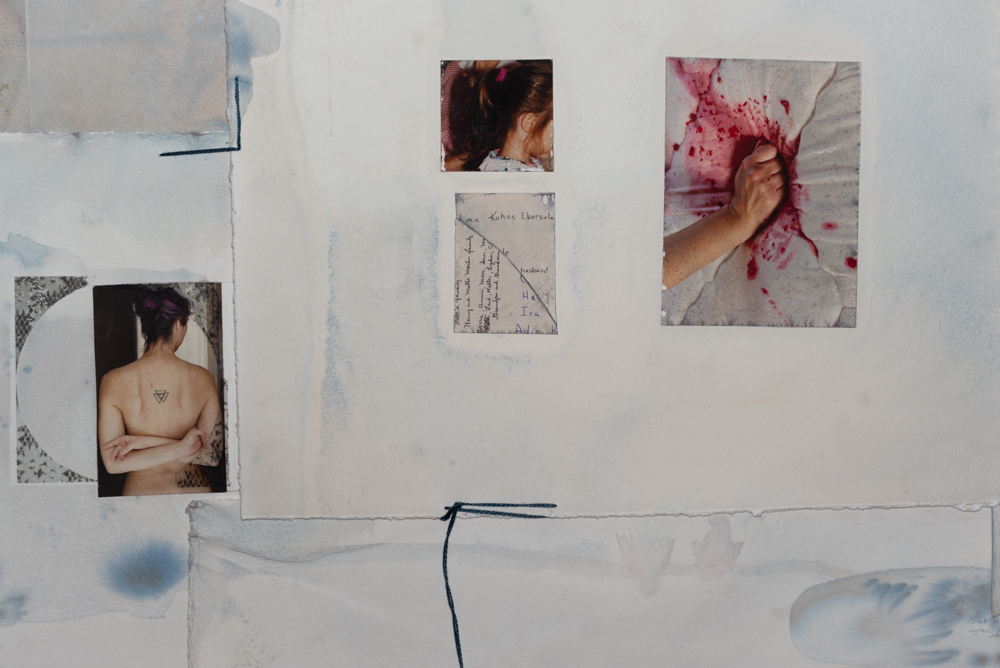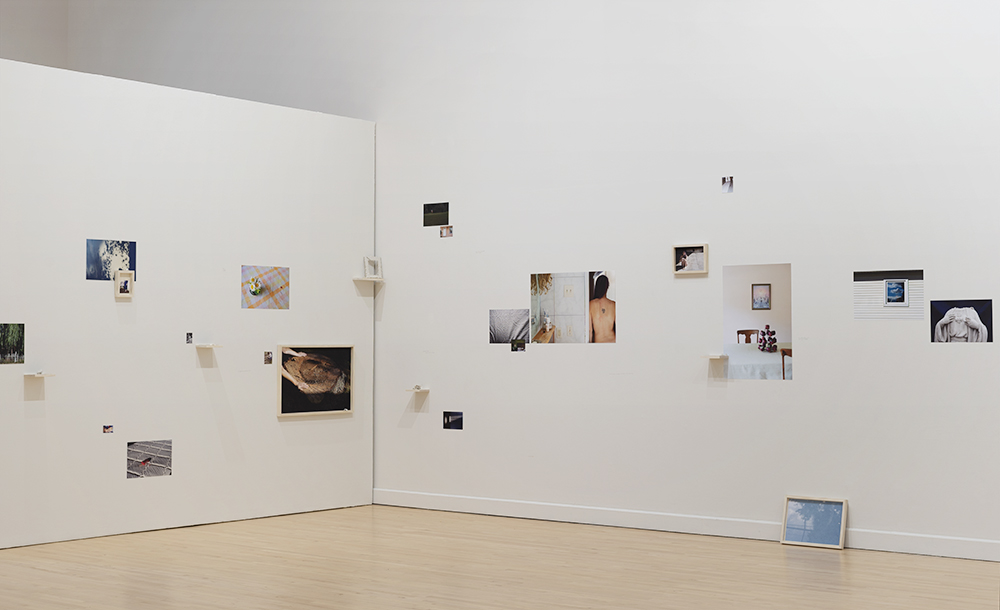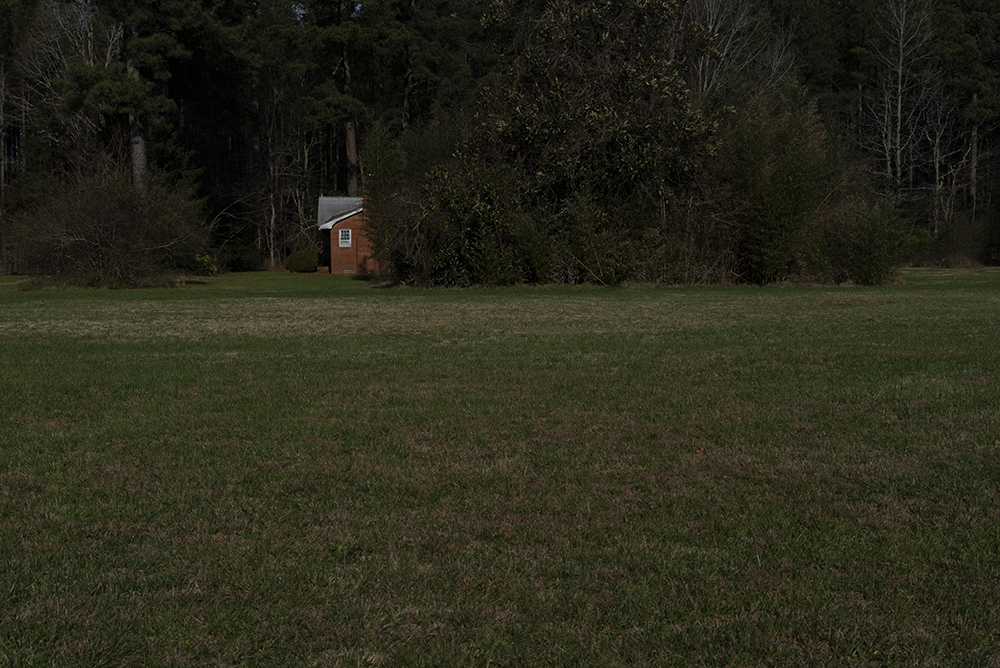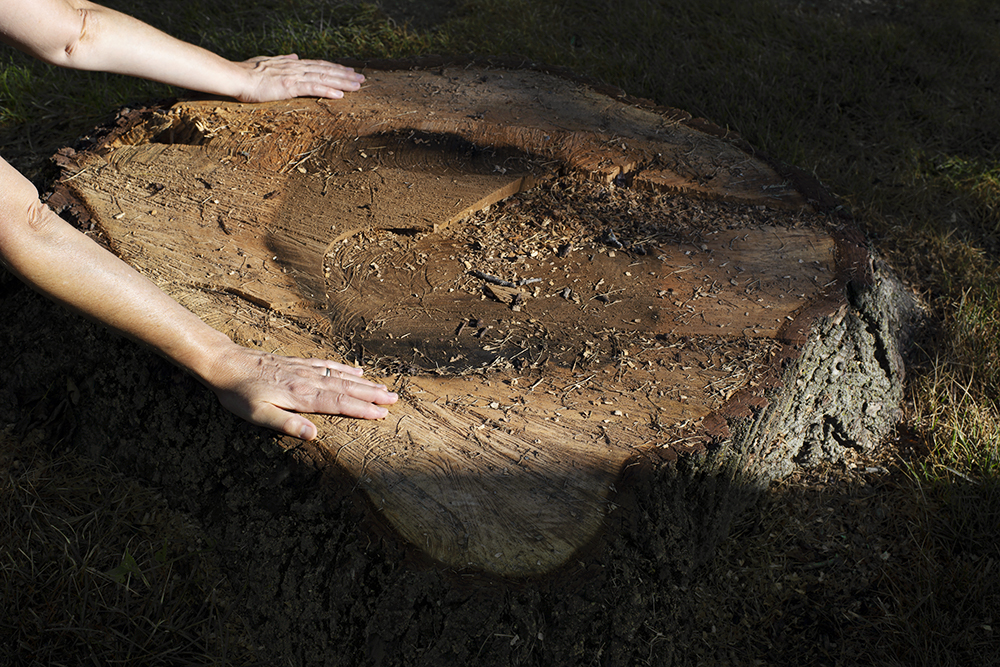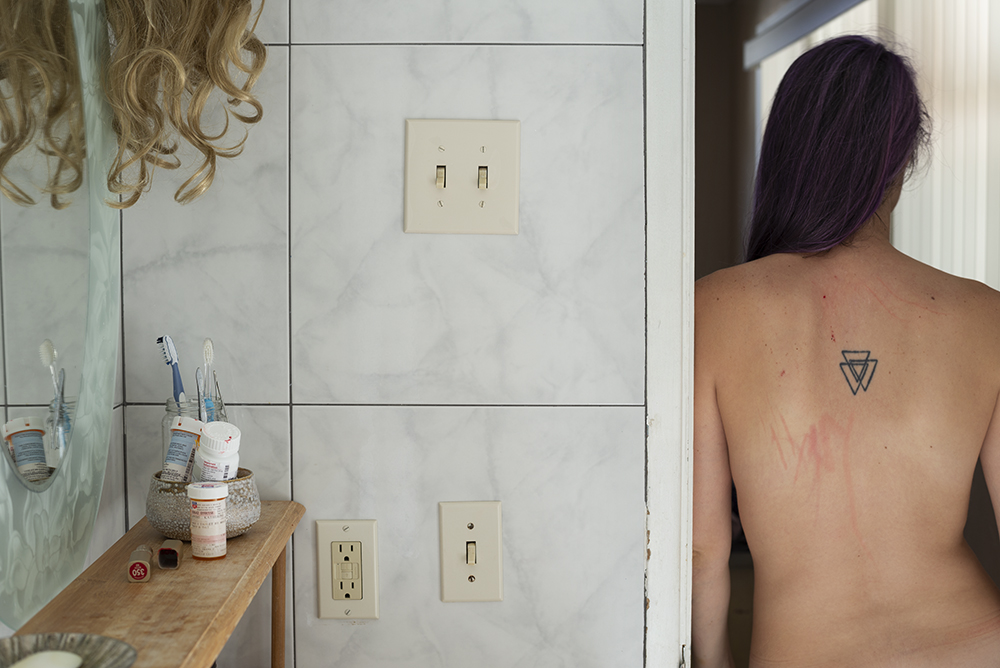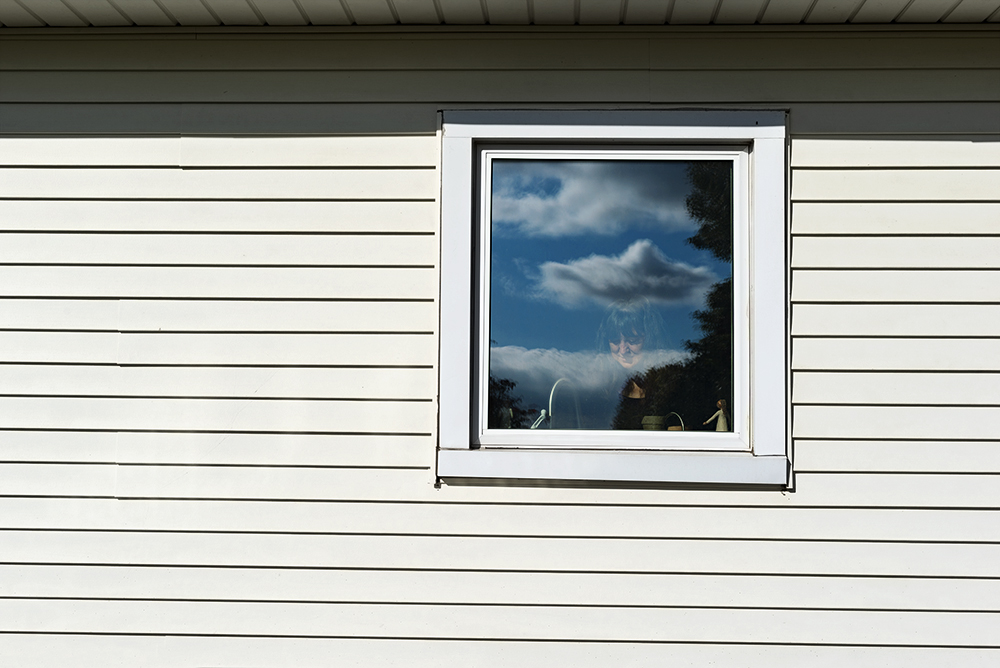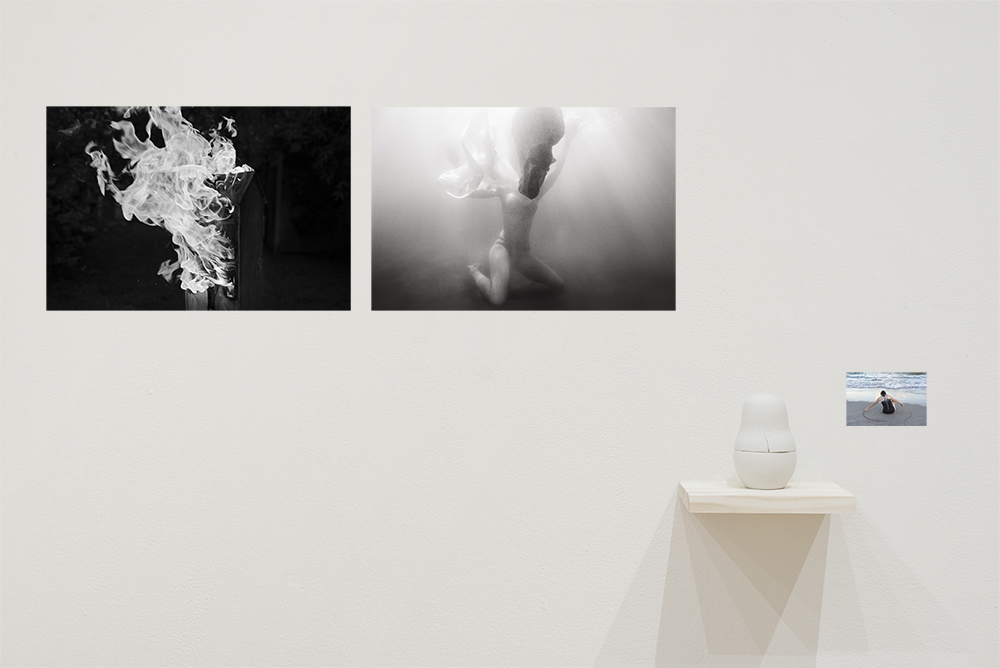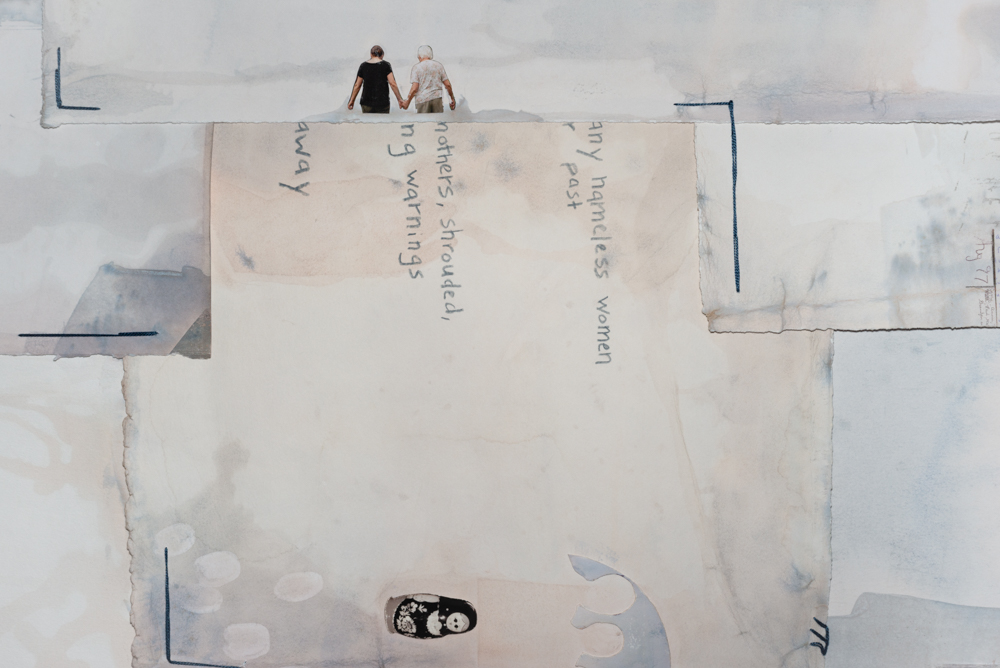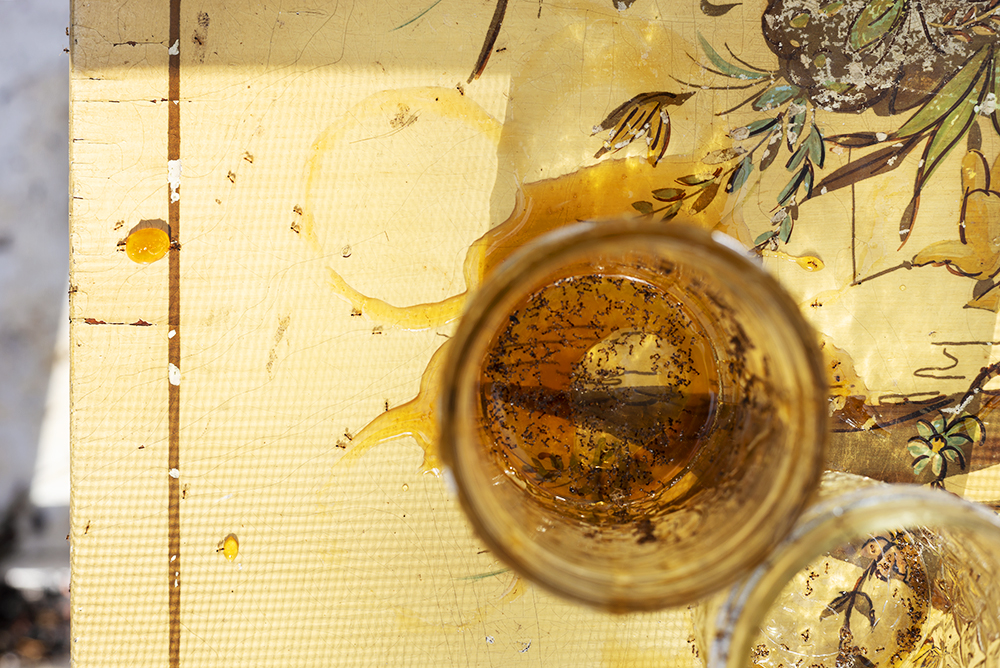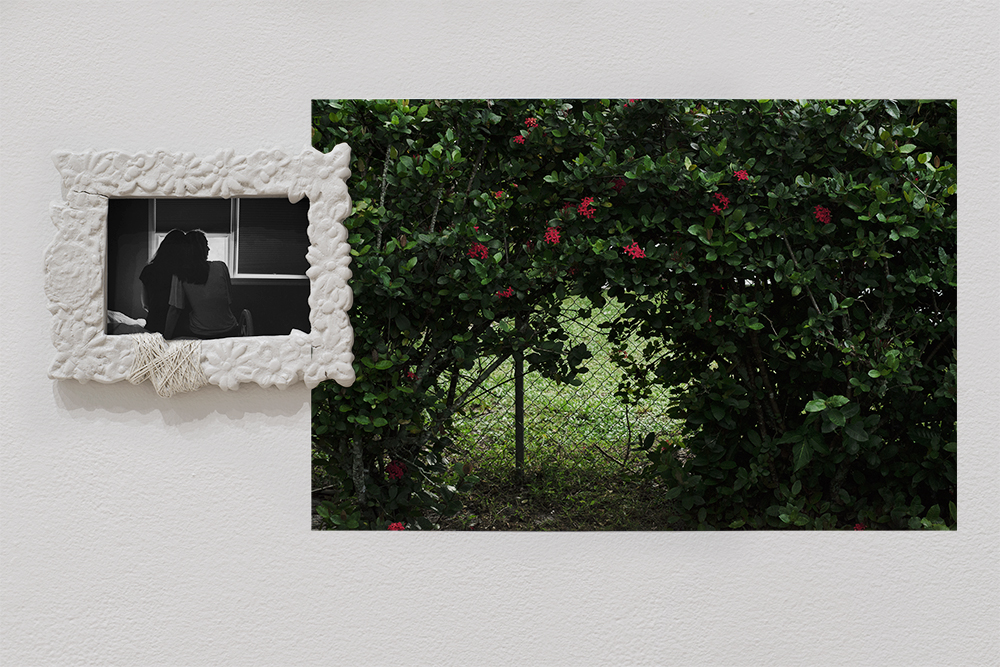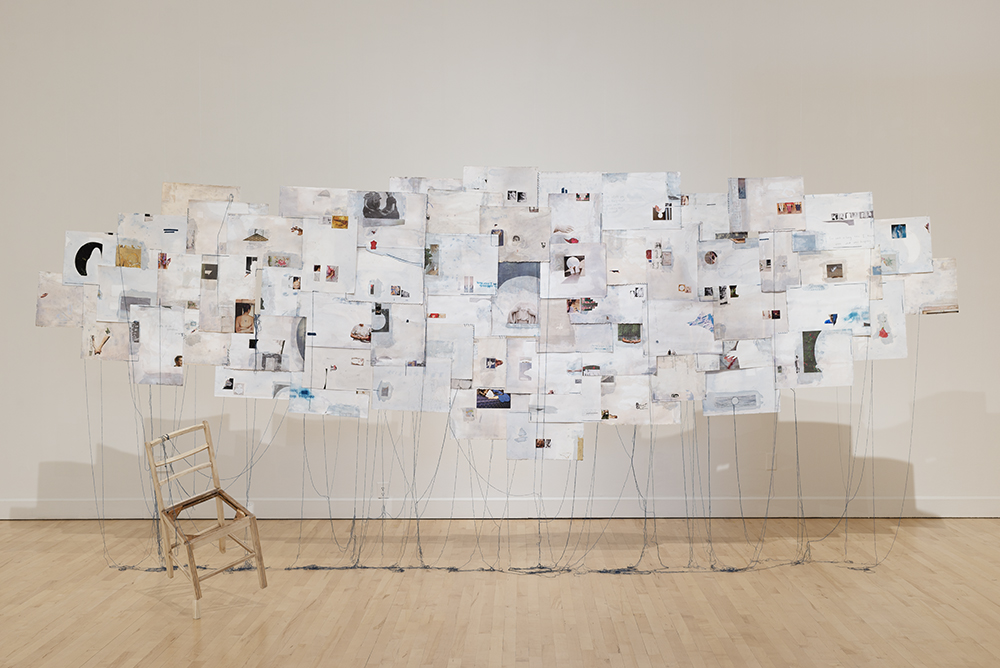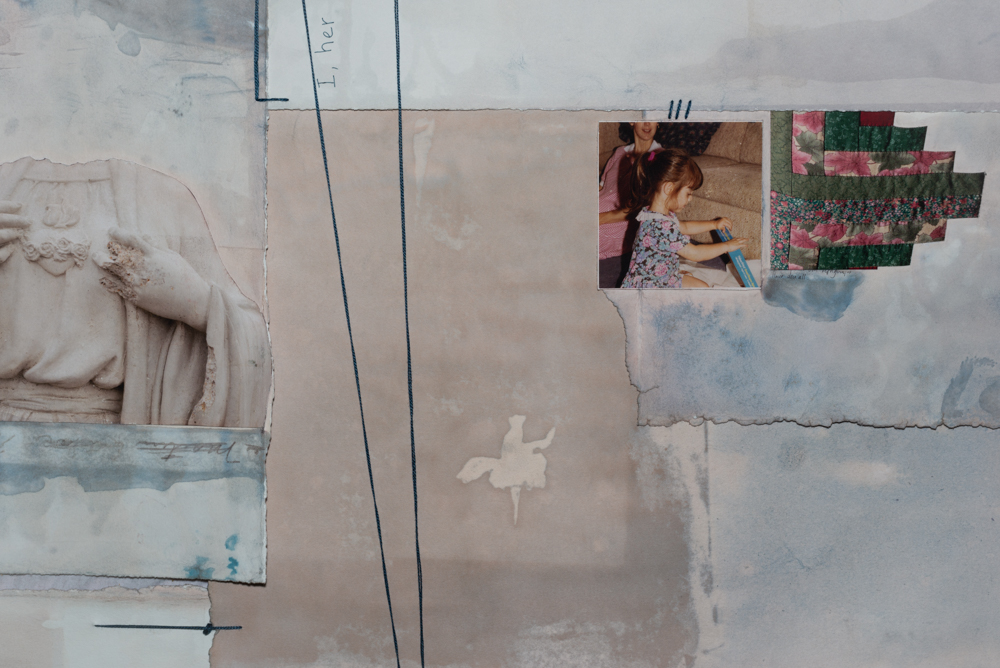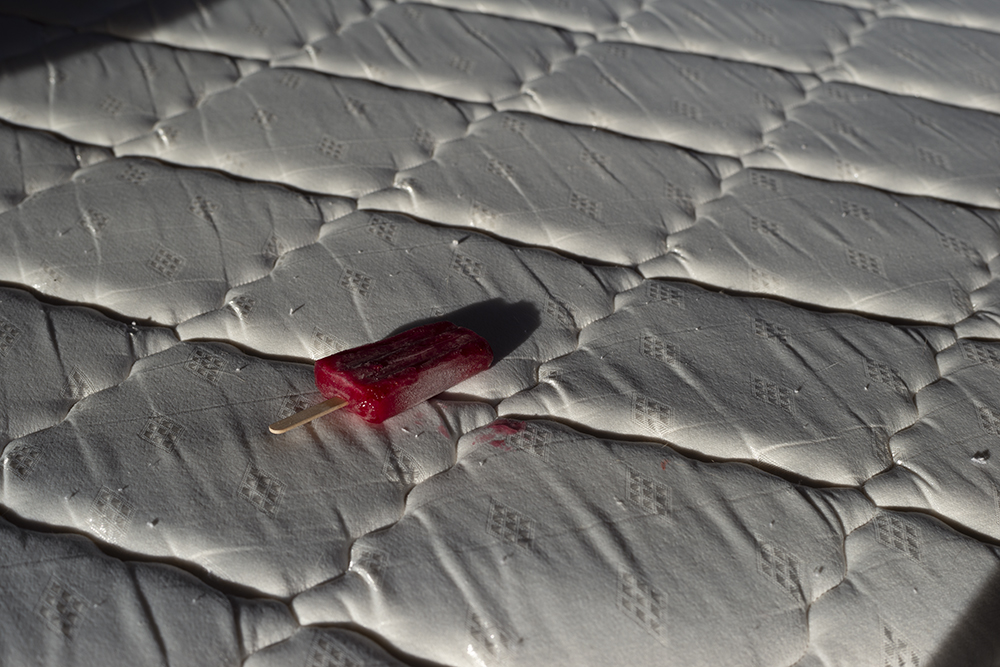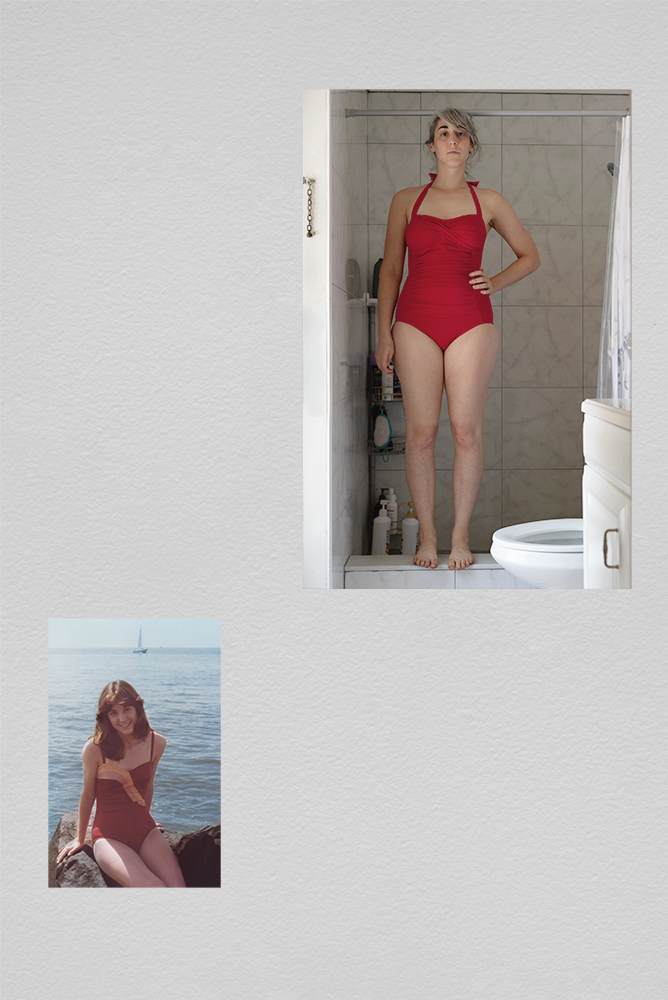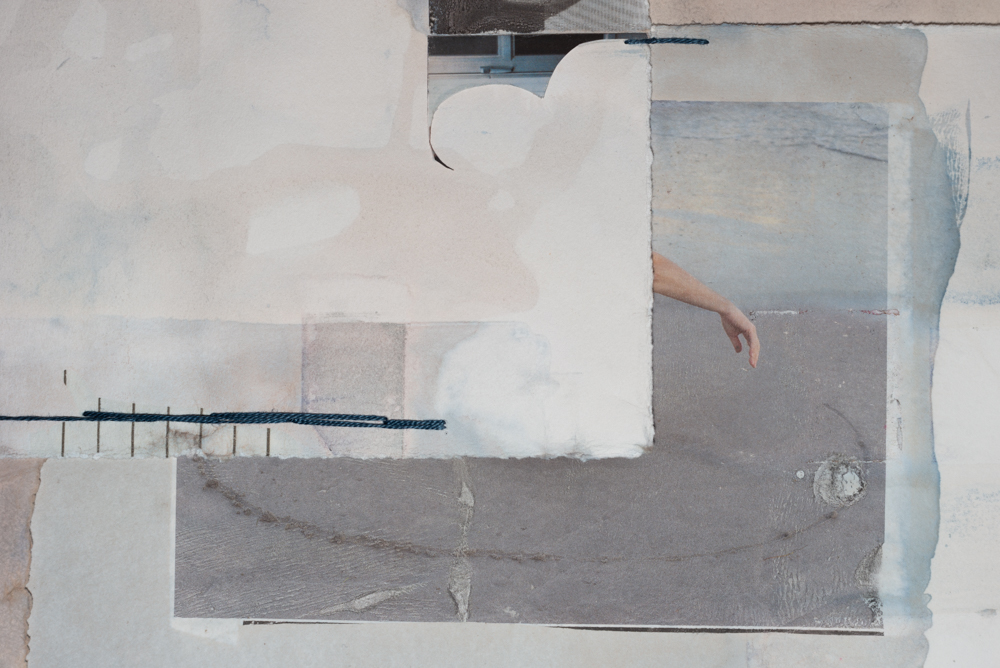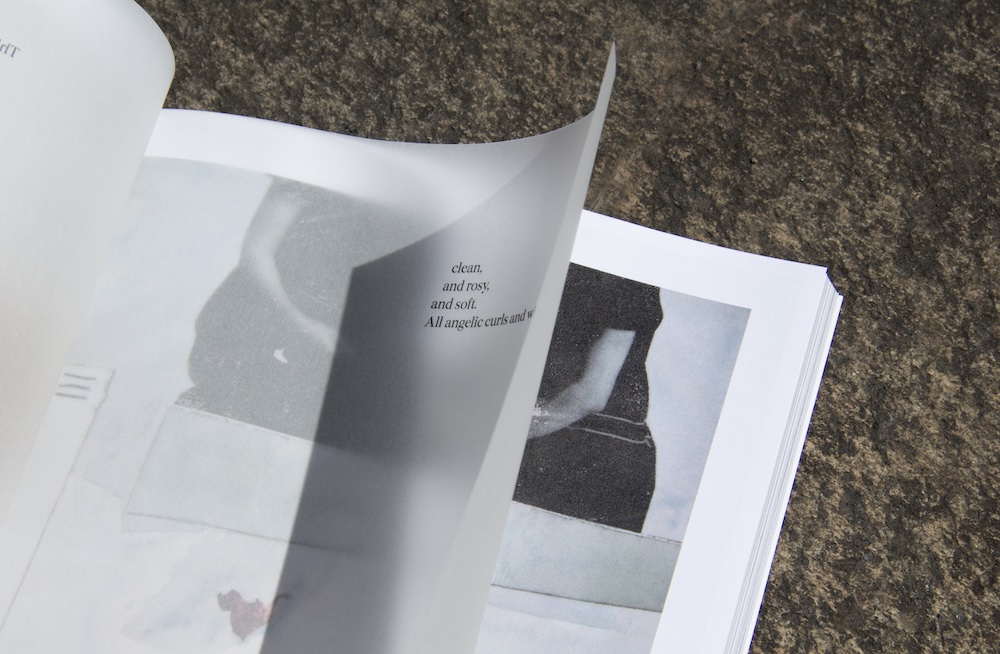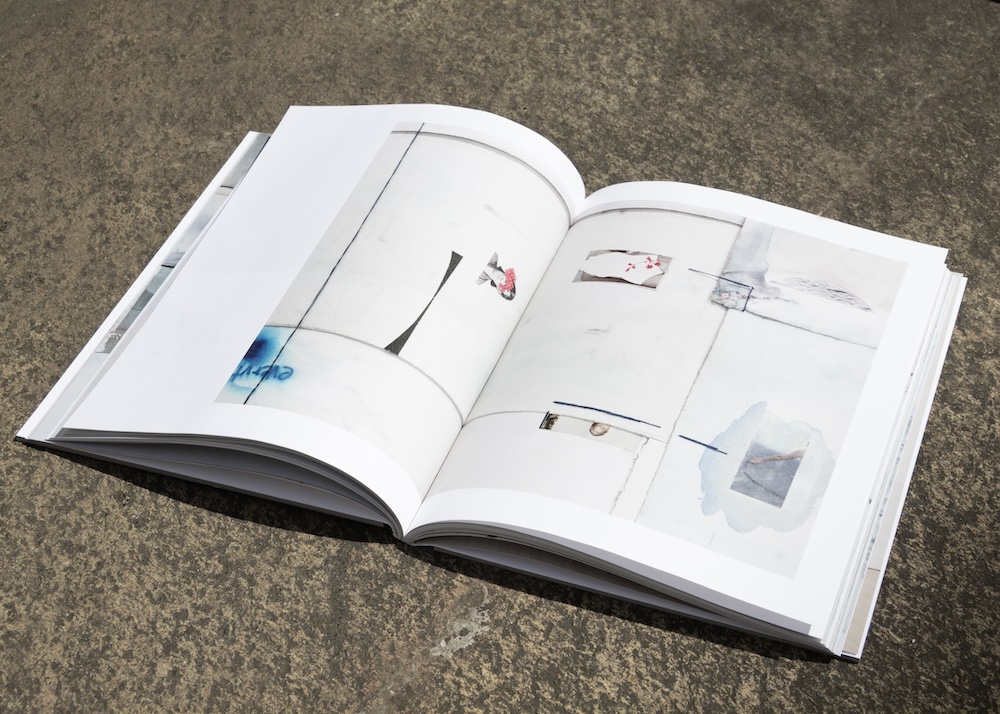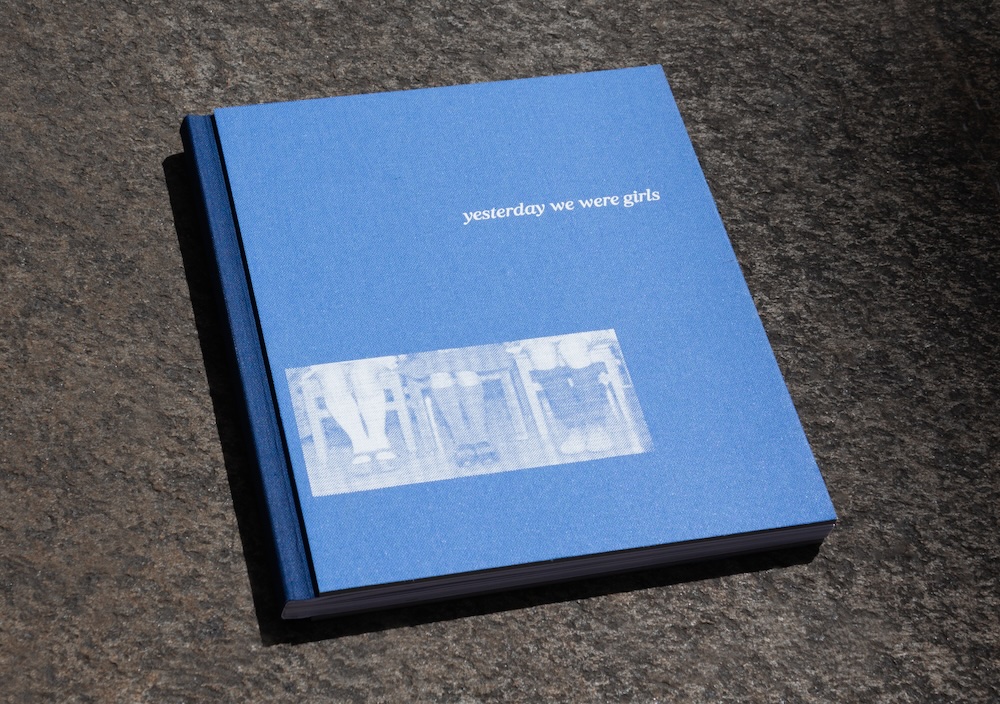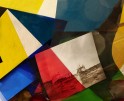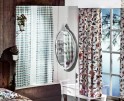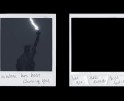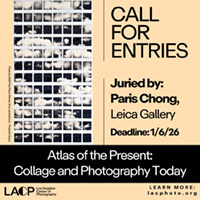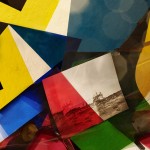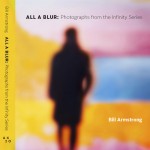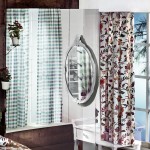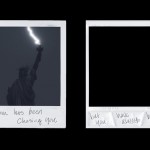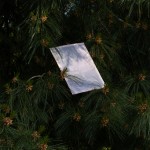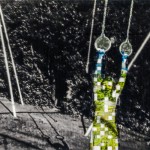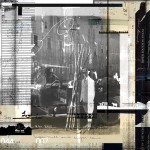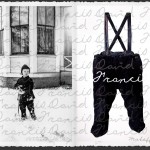Katie Prock: Yesterday We Were Girls
This week, we will be exploring projects inspired by intimacy and memory. Today, we’ll be looking at Katie Prock’s series Yesterday We Were Girls.
I found Katie Prock’s work last Spring. She submitted a few images to an open call through Midwest Nice Art, a collective I run with my husband, Tim Rickett. Briana Earl juried the exhibition, In Our Place, and Katie’s work was one of my favorites. While Katie explores photography in a variety of mediums, her work captures the essence of intimacy and memory. She often uses found imagery that she manipulates through cutting, sewing, and creating objects. Her series Yesterday We Were Girls explores the way images can represent the ways we change, and stay the same, over time. I’m particularly taken with the way she explores images through installation, creating new contexts in space. The images are personal to Katie’s experience, but viewers can enter them and feel the emotion they hold – the anxiety, the sadness, and the solace. Katie gives visuals to the indescribable feelings we endure.
Yesterday We Were Girls has been published in 2024 by the Artphilein Foundation based in Lugano, Switzerland.
Katie Prock is a photographic artist and book maker. Prock earned her MFA in Studio Art at Florida Atlantic University, where she now works as an instructor. Her practice utilizes alternative printing techniques and incorporates handcrafted processes which emphasize chance occurrence and imperfections. Her work and research focus on topics such as identity, gender, family history, and girlhood. In addition to being exhibited across the United States, Prock’s work has been featured abroad in the Body + Memory + City Photo Festival in Alicante, Spain, and Fotofestival Lenzburg in Switzerland.
Follow Katie on Instagram at: @k8tie_prock
Yesterday We Were Girls
Yesterday We Were Girls focuses on the details of my personal history to create a deeper understanding of the tension between intimacy and distance, acceptance and rejection, past and future. As a teenager, I left the Mennonite faith tradition of my family, and it felt necessary to leave behind everything that reminded me of how I was raised. I struggled between the guilt and fear of turning away from a system that had shaped every aspect of my life, and the dizzying freedom I faced as an unmoored young adult. I was not who I had been but had no idea who I wanted to be. In this fractured state, I turned to photography and creative writing as my mirrors.
This body of work includes photographic prints, a large-scale collage piece, and porcelain objects. Images from family albums mix with newly made images based on my memories from childhood. In a large-scale collage piece, I alter the photographs by adding and removing visual and written information—fragmenting, tearing, and sewing back together to reveal the disjointed sensations and selectivity of memory. The photographic works are accompanied by porcelain recreations of precious girlhood treasures and handwritten poetic prose. My mother, grandmothers, and I are separated by ideological differences, but the cycles of family, domestic life, and womanhood keep repeating, drawing us closer together.
After almost fifteen years of hiding from my heritage, balancing its influences and my own agency has become a vital part of my creative practice. Exploring the patterns of life and time that have shaped my female relatives and the culture we come from through my work has allowed me to build a purposeful identity, to look honestly at the pain I carry and to keep close the parts of myself and my heritage I can’t bear to lose.
Epiphany Knedler: How did your project come about?
Katie Prock: I began working on this project when I was twenty-eight and I saw a photograph of my mother at the same age in a red bathing suit. For just a second, I thought it was a picture of me. I was struck by the fact that we are physically so similar but so different in almost every other way. I began to collect family photos of my mom and other female relatives and combine them with images I was making of myself and my home. As I kept working, I photographed my mother and grandmothers in their homes as well. I wanted to create a loose narrative structure that contained the complexity of my relationship to my family and the way it informs my identity.
EK: What relationship does memory or intimacy play within your practice, and does photography become a way to navigate these complex topics?
KP: The photographs in this series are all filtered through memory. Either they are from the past and hold actual memory or they are my own interpretation of those past events. I have a strong memory and in some ways that’s really useful. However, I think that having a strong memory means it’s easy for me to get stuck in the past, especially the painful parts. With this work I tried to remember but not get stuck. I rewrote and reinterpreted painful memories from a new and healthier perspective. Through image making and writing, I’ve honored my history, both pleasant and painful, and imagined a future that isn’t dictated by my past.
EK: Is there a specific image that is your favorite or particularly meaningful to this series?
KP: One of my favorite individual images is a portrait of my mom shot through the kitchen window of her house. She is stuck inside at the sink but the reflection of the sky on the window brings the outside to her. It feels like a dream of escape. But the piece that stands out the most from this body of work is the large scale collage. It’s designed to be like a book or a family album, but instead of flipping through it you read all the pages simultaneously. I spent months cutting up, layering, and rearranging images and then hand sewing each page together. The final product feels like a clear statement about the expectations placed on me by the culture I come from as well as how they’ve affected me as I create the life I want for myself. Putting all my feelings into that piece made me feel strong in a way I never had before.
EK: Can you tell us about your artistic practice?
KP: I start a project by photographing or collecting images and then move into collage, bookmaking, or 3D photographic objects to develop my ideas. I fall in love with photographs, but at the beginning of a project I can be distracted by the many possible interpretations of each image. To excavate meaning, I need to cut up prints and rearrange the parts of the images that hold significance. Creative writing also plays a role in bringing my ideas into my conscious mind. I write poetry in response to photographs and those words and phrases often make their way into my pieces. Once I’ve put my images through this process, I have more clarity about which photographs are right for a specific project. The challenge then becomes deciding on the final form the work will take. I try to connect and balance the processed pieces and the straight photographs. I want some pieces to speak loudly and others to whisper that same message like an echo.
EK: What’s next for you?
KP: I’m in a time of transition in my practice. I’ve been working with the same images for a long time. The archive appears in Yesterday We Were Girls and has also fueled investigations into nontraditional materials, cyanotypes, and bookmaking. Recently I’ve begun to feel as though it’s time to move on. It’s exciting and a bit intimidating to go back to collecting and selecting images. The images I’m making now are completely different from any I’ve made before because I’m doing less constructing and working more candidly. I’m moving away from the references to my own personal history and looking towards a connection between the physical and psychological landscape. I’m still exploring a lot of the same themes, but these images are expressing them in new ways.
Epiphany Knedler is an interdisciplinary artist + educator exploring the ways we engage with history. She graduated from the University of South Dakota with a BFA in Studio Art and a BA in Political Science and completed her MFA in Studio Art at East Carolina University. She is based in Aberdeen, South Dakota, serving as a Lecturer of Art and the co-curator for the art collective Midwest Nice Art. Her work has been exhibited in the New York Times, Vermont Center for Photography, Lenscratch, Dek Unu Arts, and awarded through the Lucie Foundation, F-Stop Magazine, and Photolucida Critical Mass.
Follow Epiphany Knedler on Instagram: @epiphanysk
Posts on Lenscratch may not be reproduced without the permission of the Lenscratch staff and the photographer.
Recommended
-
Photography Educator: Juan OrrantiaDecember 19th, 2025
-
Bill Armstrong: All A Blur: Photographs from the Infinity SeriesNovember 17th, 2025
-
Rebecca Sexton Larson: The PorchApril 28th, 2025
-
Matthew Cronin: DwellingApril 9th, 2025
-
Melissa Grace Kreider: i will bite the hand that feedsSeptember 25th, 2024

